In today’s digital world, businesses are no longer restricted to hiring talent within their geographical location. The rise of offshore teams has transformed the way organizations implement Oracle HCM (Human Capital Management) solutions. By tapping into a global talent pool, companies can enhance efficiency, accelerate implementation, and ensure the highest quality standards. This blog explores how offshore teams contribute to the success of Oracle HCM implementations with a detailed breakdown of the key benefits and best practices.
1. Expanding the Talent Pool
One of the biggest advantages of offshore teams is access to a diverse and highly skilled workforce. Businesses can leverage global expertise in Oracle HCM without being limited by local talent shortages. Offshore teams provide:
- Specialists in Oracle HCM Modules: Access to functional and technical consultants proficient in Core HR, Talent Management, Payroll, Benefits, and Workforce Management.
- Certified Oracle Professionals: Many offshore consultants hold Oracle Cloud certifications, ensuring that they are up-to-date with the latest system capabilities and best practices.
- Technical Experts: Skilled developers and integrators who can manage custom configurations, third-party integrations, and data migration effectively.
- Industry-Specific Experience: Offshore teams often have experience across various industries, allowing them to tailor Oracle HCM solutions to specific business needs.
2. Cost-Effective Implementation
Hiring and maintaining an in-house team for Oracle HCM implementation can be expensive. Offshore teams offer cost-effective solutions by providing:
- Lower Labor Costs: Offshore resources, particularly in regions like India, the Philippines, and Eastern Europe, can offer the same level of expertise at a fraction of the cost of hiring locally.
- Flexible Engagement Models: Businesses can choose from full-time dedicated teams, part-time consultants, or project-based contracts, optimizing cost-efficiency.
- Reduced Overhead Costs: No need for office space, hardware, or additional employee benefits, as offshore teams operate remotely.
- Efficient Resource Utilization: Companies can allocate specialized offshore talent to specific implementation phases, reducing idle time and ensuring productivity.
3. Round-the-Clock Productivity
With offshore teams operating in different time zones, businesses can ensure continuous progress. Key benefits include:
- 24/7 Development and Support: Offshore teams work while onshore teams rest, leading to faster issue resolution and reduced downtime.
- Faster Implementation Cycles: The ability to run parallel workstreams in different time zones speeds up deployment timelines.
- Seamless Collaboration: Well-structured work schedules with overlapping hours facilitate real-time discussions and coordination.
- Proactive System Monitoring: Offshore teams can monitor system health and address potential issues outside of regular business hours.
4. Enhanced Quality and Expertise
A global workforce brings diverse experiences and best practices to Oracle HCM implementations. Offshore teams contribute by:
- Rigorous Testing Protocols: Dedicated quality assurance teams conduct extensive unit, system, and user acceptance testing (UAT) to ensure a smooth deployment.
- Best Practice Implementations: Offshore experts bring knowledge of industry standards, ensuring that Oracle HCM is set up for optimal performance.
- Compliance and Security Focus: Offshore teams are well-versed in global compliance standards such as GDPR, HIPAA, and SOC, ensuring that security best practices are followed.
- Performance Optimization: Offshore specialists continuously fine-tune configurations, integrations, and customizations to enhance system efficiency.
5. Scalability and Flexibility
Business needs can change rapidly, requiring scalable and adaptable resources. Offshore teams enable companies to:
- Quickly Scale Up or Down: Adjust the number of offshore resources based on project requirements, reducing fixed costs.
- Access Specialized Expertise on Demand: Engage offshore specialists for specific phases such as system integration, training, or post-go-live support.
- Support Multi-Phase Implementations: Offshore teams can be utilized for continuous enhancements, system expansions, and additional module rollouts.
- On-Demand Workforce Augmentation: Offshore resources can complement in-house teams, filling skill gaps when needed.
6. Driving Innovation and Digital Transformation
Oracle HCM implementation is not just about deploying software—it’s about enabling digital transformation. Offshore teams bring:
- Expertise in Emerging Technologies: AI-driven analytics, automation, and chatbots are becoming integral to modern HCM implementations, and offshore teams are skilled in integrating these innovations.
- Data-Driven Decision Making: Offshore experts can help organizations harness the power of Oracle HCM’s analytics to make informed HR decisions.
- Process Optimization: Streamlining HR workflows through automation and self-service capabilities improves efficiency and employee experience.
Cloud-First Strategy Implementation: Offshore teams help businesses transition smoothly from legacy systems to cloud-based Oracle HCM solutions, ensuring minimal disruption.
Conclusion: The Time to Act is Now
Leveraging an offshore team for Oracle HCM implementation unlocks a world of opportunities. By accessing global talent, businesses can ensure cost efficiency, faster deployments, high-quality execution, and ongoing innovation. With the right strategies and best practices in place, offshore teams can significantly contribute to HR digital transformation, helping organizations optimize their workforce management processes and achieve long-term success. Feel free to get in touch with ValueVerse Consulting and let’s explore the possible synergy to be your offshore trusted partners.





